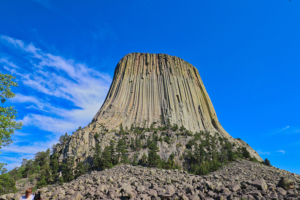Native Organizers Alliance submitted a public comment in support of the Advisory Committee on Reconciliation in Place Names’s work in rectifying injustices in renaming derogatory landmarks and places on Federal and public land. We are committed to ensuring pathways for grassroots tribal and Native communities to play their unique role in this process.
Native Organizers Alliance (NOA) is grateful for the efforts of the Advisory Committee on Reconciliation in Place Names (ACRPN) and the Department of the Interior (DOI) for initiating the critical work of rectifying injustices in renaming derogatory landmarks. We believe it is a step towards healing which is needed to assure a thriving multi-racial democracy. We applaud all efforts to promote dignity and respect toward Indigenous peoples and our cultures. The use of offensive place names perpetuates discrimination, racism, and denies this land’s history of Indigenous people being the original stewards of this land. And obscures the crucial role that our traditional knowledge can play in the 21st century.
In 2022, NOA mobilized Native and non-Native grassroots to join many voices urging the DOI to consider and work with the Tribes and local Indigenous communities affected by offensive place names. Soon after, the DOI and Secretary Haaland took historic steps in renaming historical landmarks nationwide by removing “squaw” from the official names of over 650 geographical landmarks and waterways in the U.S. It is the beginning of a historic and urgent necessity to continue this work to ensure that Tribes and Native communities and their traditional belief systems are respected. NOA and its partners will continue to advocate renaming locations with degrading slurs to heal historical wounds.
Renaming these sites to an agreed term by local Tribal and Native communities not only promotes respect and dignity of Native peoples, it also supports building pride in the beauty of the natural world. We are creating a future in which the beauty of landscapes will not be tainted by reminders of systemic racism for generations to come.
Too often, the U.S. government does not follow through with adequate consultation with Tribes to gain their consent in actions that directly impact their communities. We urge the Committee to reevaluate the landmark naming structures and include Tribal and Native community representatives in the decision making. Native communities have the right to choose names that reflect our history and culture. It is critical to work collaboratively with Tribal Nations to identify and replace derogatory and offensive terms with culturally appropriate words.
In closing, NOA is thankful to the ACRPN and partner Tribes for moving to eliminate racism and derogatory place names and expresses our commitment to working collaboratively with the Committee. NOA is committed to ensuring pathways for grassroots Tribal and Native communities to play their unique role in this process. We will also do more to mobilize the broad majority of people living on this land who want a more just and equitable society and to create an inclusive future for all.




